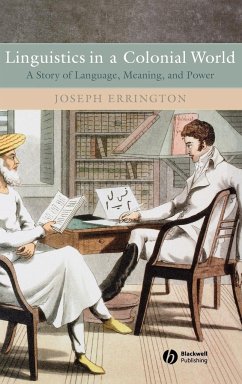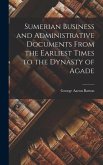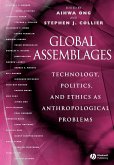As knowledge of exotic languages became important for colonial power, linguistic scholarship became a crucial contributing element to colonial regimes. Linguistics in a Colonial World draws on both original texts and critical literature to survey the methods, meanings, and uses of linguistics in and for colonial projects over three centuries. By focussing on the shaping effects of linguists' work on identities and communities, this book foregrounds their field's larger meanings and uses for the practical and ideological challenges of colonial rule. Additionally, it traces continuities between colonial and postcolonial politics of culture as they emerge in contemporary controversies over language endangerment and rights in a globalizing twenty-first century.
Hinweis: Dieser Artikel kann nur an eine deutsche Lieferadresse ausgeliefert werden.
Hinweis: Dieser Artikel kann nur an eine deutsche Lieferadresse ausgeliefert werden.
"This slim book covers a lot of ground, geographically,historically, and intellectually." (Journal of the RoyalAnthropological Institute, December 2008)
"Errington ... provides a useful overview of analytical andmethodological developments and changing applications in thehistory of linguistics. Highly recommended." (CHOICE,November 2008)
"The succinctness of the writing and the importance of thecentral argument make the reviewed text likely to appear on manycourse syllabi." (Journal of Sociolinguistics)"This book provides both an introduction and an innovative argumentabout the development of colonial linguistics and its place in therise of 19th century European linguistics as a field of expertknowledge. This is stimulating scholarship and a valuable teachingresource for linguistic anthropology, sociolinguistics, history oflinguistics, cultural studies and historiography."
Kathryn Woolard, University of California: San Diego
"This splendid history of ideas is a nuanced reflection on howlanguage and humanity became each other's deepest theoreticalmirrors as the world made the transition from colonialism to themore recent forms of globalization. It is also a superbcontribution to the general dialogue between linguistics and itscognate human sciences."
Arjun Appadurai, The New School
"In this concise, eloquent yet wide-ranging book, JosephErrington demonstrates the importance of understanding linguisticsas a special kind of colonial encounter. Linguistics, he shows, hasalways operated within particular relations of power, constructs ofsameness and difference, and ways of reducing languages to writing.The European science of language helped legislate on the one handnational difference in Europe and on the other human inequality inEuropean empires. Linguistics, Errington shows, may claimscientificity but it can never be insulated from the speech ofthose it studies; it is always entangled with contexts, projectsand linguistic ideologies from the past. This book thereforeprovides not only key historical discussion of the long and fraughtconnections among colonialism, linguistic description, literacypractices, and social imaginations, but also challenges anycontemporary practising linguist - whether engaged inpan-human speculations about universal language, continuingmissionary linguistic projects, or attempts to save and preserveendangered languages - to understand current postcoloniallinguistic projects in relation to the colonial past."
Alastair Pennycook, University of Technology-Sydney
"Errington ... provides a useful overview of analytical andmethodological developments and changing applications in thehistory of linguistics. Highly recommended." (CHOICE,November 2008)
"The succinctness of the writing and the importance of thecentral argument make the reviewed text likely to appear on manycourse syllabi." (Journal of Sociolinguistics)"This book provides both an introduction and an innovative argumentabout the development of colonial linguistics and its place in therise of 19th century European linguistics as a field of expertknowledge. This is stimulating scholarship and a valuable teachingresource for linguistic anthropology, sociolinguistics, history oflinguistics, cultural studies and historiography."
Kathryn Woolard, University of California: San Diego
"This splendid history of ideas is a nuanced reflection on howlanguage and humanity became each other's deepest theoreticalmirrors as the world made the transition from colonialism to themore recent forms of globalization. It is also a superbcontribution to the general dialogue between linguistics and itscognate human sciences."
Arjun Appadurai, The New School
"In this concise, eloquent yet wide-ranging book, JosephErrington demonstrates the importance of understanding linguisticsas a special kind of colonial encounter. Linguistics, he shows, hasalways operated within particular relations of power, constructs ofsameness and difference, and ways of reducing languages to writing.The European science of language helped legislate on the one handnational difference in Europe and on the other human inequality inEuropean empires. Linguistics, Errington shows, may claimscientificity but it can never be insulated from the speech ofthose it studies; it is always entangled with contexts, projectsand linguistic ideologies from the past. This book thereforeprovides not only key historical discussion of the long and fraughtconnections among colonialism, linguistic description, literacypractices, and social imaginations, but also challenges anycontemporary practising linguist - whether engaged inpan-human speculations about universal language, continuingmissionary linguistic projects, or attempts to save and preserveendangered languages - to understand current postcoloniallinguistic projects in relation to the colonial past."
Alastair Pennycook, University of Technology-Sydney




![The Primitive Baptist [serial]; v.24-25 The Primitive Baptist [serial]; v.24-25](https://bilder.buecher.de/produkte/66/66132/66132075m.jpg)

![The Primitive Baptist [serial]; v.2 The Primitive Baptist [serial]; v.2](https://bilder.buecher.de/produkte/65/65528/65528118m.jpg)
![The Primitive Baptist [serial]; v.10 The Primitive Baptist [serial]; v.10](https://bilder.buecher.de/produkte/65/65531/65531308m.jpg)
